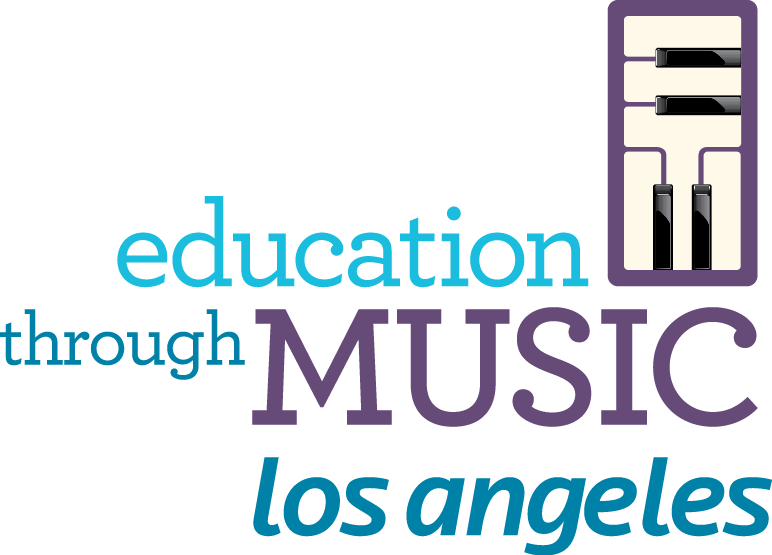What are some ways you amplify and celebrate Black music throughout the year?
I produce concerts throughout the year, especially in February, that highlight the contributions of Black artists and the sociological impact of the music. I teach a music history class that delineates the impact of Black music on America since the Civil War. I also conduct the African American Chamber Music Society Orchestra which focuses on the music of Black symphonists.
Vince Womack, Conductor, Music Professor, & ETM-LA’s 2017 Shining Star Music Educator

Growing up I was always surrounded by incredible Black music makers from listening to artists on vinyl records and cassettes, seeing summer jazz performances at the local park, to performances on Broadway and Madison Square Garden. From early on, I knew the rich history of Black music and how it impacted the lives of my family and community. Music was always associated with positivity, coming together, and mainly uplifting everyone.
There’s a song for every occasion, and it’s more than likely a connection to a part of your life’s journey in that song. We celebrate it by keeping the stories going by the telling of our history through music. It’s a spiritual and emotional connection to include Black music not only in my teaching to the next generation, but also exposing students to a variety of subcultures within our culture.
There are so many similarities of Black music making from the diaspora that are connected to other parts of the world, and I want others to be able to connect with that. Black music also brings along several other communicative pieces, from fashion style to culture trends, and even language. There is no one way to do Black music – but to do it! Black music is going to have you in your feels, moving your body, and singing as heartfelt as you can!
Tiffiny Reckley, ETM-LA Instructional Supervisor & Professional Development Specialist

Representation. I make sure to share music from black artists and not just during the month of February. Additionally, presenting and singing songs that are a part of black history like Follow the Drinking Gourd helps to tell the full story and keep students informed.
Alex Collie-Hartmann, ETM-LA Music Teacher Mentor

By engaging students in repertoire created by Black musicians through listening, movement, and instrumental performance while providing their accurate historical contexts and performance practices.
Mary Connor, ETM-LA Music Teacher

By being Black and a jazz artist, I celebrate my musical heritage every day of my life. Being able to listen to the greats in any genre of music and being able to reflect on the genius of the past, current and future gives me a great sense of hope and freedom. I do my best to share it with everyone that I encounter, perform whenever I can and listen to who is playing. My heroes include John Coltrane, Quincy Jones, Herbie Hancock, Wayne Shorter, Donny Hathaway, Marvin Gaye, Nina Simone, Sade, Stevie Wonder and too many more to mention here.
Tony White, ETM-LA Advisory Board Member
Music from the African diaspora tends to value improvisation and originality. To celebrate these ideas, my students performed our own version of the 1970s hit song “Why Can’t We Be Friends?” in our Spring concerts. We began this process by discussing the historical origins of the song and the ways the music commented on the social and racial dynamics of the day. Next, we rewrote some of the lyrics to reflect the students’ own lived experiences. In this way, we were not just imitating the original song, but honoring it by giving it the opportunity to evolve in a way that doesn’t compromise the song’s original intention.
Ben Makarchuk, ETM-LA Music Teacher
# # #
Education Through Music-Los Angeles is an independent 501(c)(3) non-profit organization whose mission is to provide and promote music in under-resourced schools as part of the core curriculum for every child in order to enhance students’ academic achievement, creativity, and overall development.
For more information: www.etmla.org







